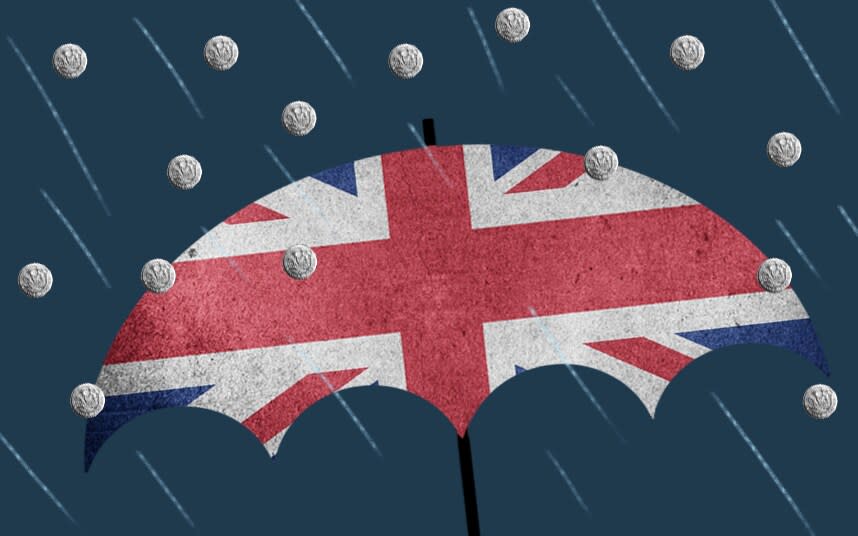Living standards 'return to the 70s' as household incomes will drop 4pc

Britain faces the worst living standards crisis since the 1970s as household incomes will fall by 4pc in real terms over the next year, largely driven by the war in Ukraine.
Household incomes will drop by £1,000, the sharpest annual income fall since the mid-1970s, according to the Resolution Foundation’s annual living standards report.
Russia’s invasion will push inflation above 8pc, the think tank estimated, cutting millions of incomes in Britain on a scale only previously seen during recessions. Prior to the conflict, the Bank of England had predicted inflation would hit 7.25pc in April.
Conflict in Ukraine is likely to feed into higher energy bills and wider inflation at home, the firm’s Adam Corlett warned.
“Britain has stepped out of a global pandemic, and straight into a cost of living crisis,” he said.
Wholesale prices of gas and oil have rapidly increased post-pandemic and surged higher on news of international sanctions against Russia. This will be the main driver of inflation, the report said.
Oil prices have jumped higher this week, rising by a fifth after America said it was considering rolling out a ban on imports from Russia. Brent crude has surged as high as $139 (£106) a barrel, up almost $40 since the Russian invasion began, rising to its highest level since 2008.
The think tank called on the Government to do more to cushion the burden of rising energy bills. Levies that increase electricity bills by around £170 a year could be removed from consumer bills and instead be funded by general taxation, it said.
One specific option would be for the Government to cut “renewables obligation” costs, taking around £70 a year off household bills. If done in October, this measure would offset some of the energy price cap rise.
The price cap, which limits what energy suppliers can charge per unit of energy, is already rising in April. The average household will pay no more than £1,971 per year for gas and electricity over a year, under the rules. The cap will rise again in October, likely to around the £3,000 mark, analysts have predicted.
British families should brace themselves for an even deeper living standards squeeze as price rises could rival the 8.4pc level reached in 1991.
The report said: “While 2020-21 and 2021-22 were terrible years in many respects, in terms of real household incomes, they are as good as it gets over our projection period up to 2026-27.”
The typical household income will be lower in 2025-26 than it is today without a turnaround in forecasts. With this, the period from 2019-20 to 2024-25 is on track to be the worst parliament on record for income growth, the Resolution Foundation said. That is assuming there is no long-run impact of the war in Ukraine on living standards.
Pensioners are among those who will be most impacted by rising prices. The Government will save £10bn in benefit spending in the 2022-23 tax year, as it fails to increase the state pension in line with inflation.
The state pension will rise by £5.55 a week in April but this 3.1pc increase is not enough to keep up with inflation, particularly if it rises above 8pc. More than 12 million pensioners will be hundreds of pounds worse off as a result.
“This one-off £10bn cut to benefit spending – more than the amount the Government spent on pandemic-related temporary benefit increases in 2020-21 – and will take the core level of support in the benefit system to its lowest level in real-terms since 1983-84,” the report found.
Adam Corlett of the Resolution Foundation, urged the Chancellor to revisit plans to increase the state pension by just 3.1pc.
He said: “In the longer term, turning around the UK’s relative decline compared to other advanced economies, and reversing our terrible recent record on productivity, is the only route to meeting the living standards challenges Britain faces.”

 Yahoo Finance
Yahoo Finance